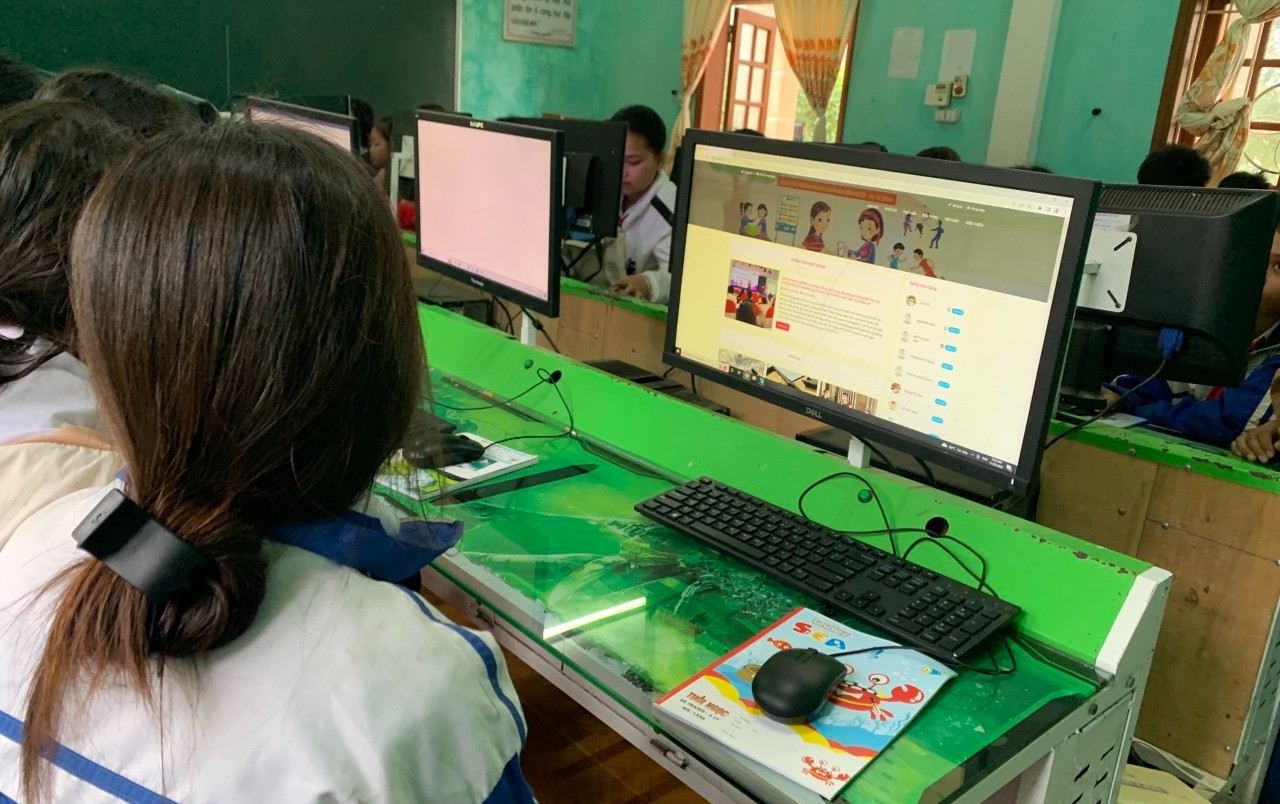Children's personal data leaked online
At the seminar "Protecting personal data and preventing harmful information for children online: From awareness to policy and technology" organized recently by the Vietnam Information Security Association (VNISA), VNISA Vice President Ngo Tuan Anh said that according to a study, the average age of Vietnamese children owning a phone is 9 years old, 4 years earlier than the world average.
However, most children are not equipped with the knowledge to protect personal information as well as their own safety when participating in the online environment and unintentionally, children's data also becomes prey for criminals.

Assessing that the situation of leaking and stealing personal data, including children's data, is quite common, Ms. Dinh Nhu Hoa, Head of Inspection Department, Vietnam Cyber Emergency Response Center (VNCERT), Department of Information Security, Ministry of Information and Communications, said that currently there are many cases of personal information being leaked.
Ms. Hoa noted that information leaks are not only in Vietnam. In fact, personal information is the most valuable type of information, a "gold mine" that bad guys always target. Fraudsters exploit a lot of personal information of users, parents (Citizen ID, account number, phone...) and children.
According to Ms. Hoa, there are a number of main reasons why children's information and data are leaked. The first reason is that information systems collect and store user data but have not approved the level and have not fully implemented plans to ensure information security according to the corresponding level, leading to easy access. attacked and exploited.
In addition, children's information is also leaked due to users' poor awareness, carelessness, and easy provision of information online. Many parents and many schools do not pay much attention when sharing information.
“At the end of the school year, information sharing is rampant as parents show off their children's transcripts and achievements after a very comfortable school year online. From here, bad guys can access how old your child is, what grade he's in and how many study points he gets," Ms. Hoa said.
In addition, agencies, organizations, and businesses collect a lot of data but do not protect it securely; unauthorized sharing to third parties; leak from data management staff. Along with that, online fraud is increasing, many websites are set up to collect personal information.
Sharing the impact of harmful information on the online environment on children, Mr. Do Duong Hien, Childfund Vietnam said that in the process of working and conducting assessment surveys, there has been clear evidence. about the psychological impact of children when exposed to inappropriate information. There are data showing that 20% of children have feelings of fear and disgust when watching clips of violence and sexual acts within 1 month after accessing the information.
Also according to Mr. Hien, an international report in 2022 said that there were 1 million reports from technology companies from Vietnam related to images of child sexual abuse online, an increase of 20% compared to the previous year. 2021. Number of abusive images uploaded by users in Vietnam. The children shared their experiences such as fear, disgust, helplessness, abandonment and loneliness.
Joining hands to protect and accompany children
Deputy Director of the Department of Children, Ministry of Labor, War Invalids and Social Affairs Nguyen Thi Nga also said that the harm children face when personal information is shared online and taken advantage of by bad guys is huge. The first effect is annoying for children, more harmful is related to fraud and abuse. Leaking personal information can also lead to children being bullied and abused online.
According to Ms. Nga, prevention is still the most important. If children are deceived through leaking information online, parents and teachers need to always be by their side to accompany their children.
Currently, the legal system in Vietnam has regulations on children's rights to privacy and confidentiality. Regulations need to be converted into knowledge and skills of children and parents.
Ms. Dinh Thi Nhu Hoa, Department of Information Security, said that the Ministry of Information and Communications has added regulations on handling violations of personal information collection. The fine can be up to 40 - 60 million VND. What needs to be done is to raise awareness of organizations, businesses and individuals.
In particular, the Ministry of Information and Communications is also evaluating digital products and services that protect and support children. In particular, 2 groups of products will be evaluated including child protection; Support children in learning, playing, and entertaining.
As for technology companies, Mr. Hoang Anh, CMC Group, said that platforms are supporting users to limit the exposure of their personal information. Today's networking platforms also have toolsto control inappropriate and harmful content. In addition, there are additional technology applications to support parents in managing their children's journey on social networks.
Mr. Chu Dai Thong, Deputy Head of the Cyber Information Security Department, Department of Cyber Security and High-Tech Crime Prevention, Ministry of Public Security said: The Ministry has coordinated with many ministries and branches to implement Decision No. 830 /QD-TTg of the Prime Minister dated June 1, 2021 on approving the Program "Protecting and supporting children to interact healthily and creatively in the online environment in the period 2021 - 2025".
In the coming time, the Ministry of Public Security will also continue to coordinate to inspect the implementation of Decree No. 53/2022/ND-CP dated August 15, 2022 detailing a number of articles of the Law on Cyber Security and Decree No. 13/2023/ND-CP dated April 17, 2023 on personal data protection to protect user information in general and information about children in particular; Limit personal information and children's information being sold and used illegally online.
Hai Minh